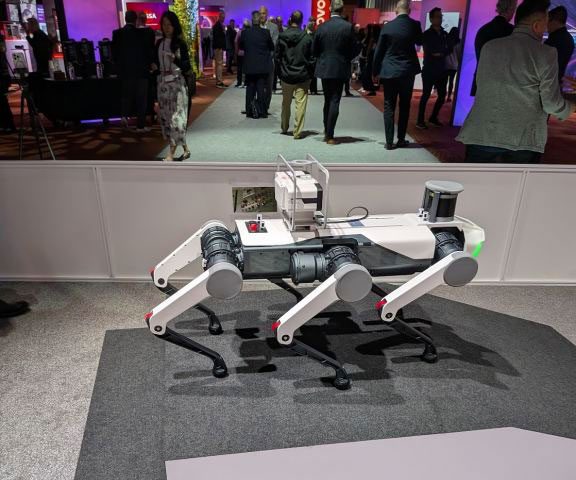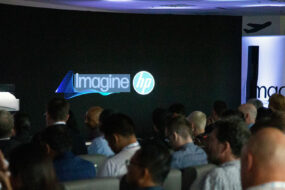
Lenovo Group and Dell Technologies may seem similar on paper, but their approaches to business and leadership are quite distinct. The differences became evident when comparing last week’s Lenovo Tech World 2024 event with Dell’s upcoming event next month.
A key distinction lies in the nature of their acquisitions and executive structures. Lenovo’s leadership team is globally distributed, giving it a truly international presence, while Dell’s leadership is largely centered in the U.S. Michael Dell played a pivotal role in the company’s growth but appears to be slowly stepping back, almost retiring in place. In contrast, Lenovo’s CEO, Yang Yuanqing (YY), remains actively involved and integral to the company’s direction.
This difference in leadership allows Lenovo to be more agile and proactive in responding to industry shifts. While Lenovo has already embraced AI with decisive moves, Dell seems to struggle with making such transitions and is facing significant layoffs to catch up with the AI developments that Lenovo has already integrated.
AI usage also highlights the divergence. Lenovo is already leveraging AI operationally and offering established AI solutions, while Dell still appears to be grappling with understanding and implementing the concept. Dell’s marketing efforts may be masking these gaps, but the layoffs suggest that many customers are not being fooled.
Let’s take a closer look at some of the highlights from Lenovo Tech World 2024 before we conclude with my Product of the Week—an intriguing, mechanized laptop showcased at the event.
A Powerful Opening
The opening moments of such events often reveal where a company’s priorities lie. It might feature humor or focus on a flagship product, but sometimes I am genuinely surprised, and this event was one of those times.
Lenovo began with an incredibly impactful demonstration: an individual with advanced ALS, unable to speak and only able to move her eyes, was empowered by an AI solution that allowed her to speak again. This breakthrough, especially for ALS patients, provides a new level of independence, offering both the ability to communicate and engage online.
Following this, Lenovo highlighted its efforts in AI-driven education. While education may not be a highly profitable sector, personalized AI learning tools for students could have a transformative effect, increasing engagement and improving outcomes across various demographics. Automated quizzes, coupled with AI-driven classes that generate more engaging content, would better prepare students for a future dominated by AI.
These initiatives signal that Lenovo is driven by a desire to make a positive societal impact, not just profit. This focus is crucial, especially in an era where technology has the potential to disrupt many industries and displace jobs.
Lenovo made it clear that its use of AI is not to replace people but to enhance the value of individuals, whether they are students, employees, or those with disabilities. This mindset sharply contrasts with Dell’s recent layoffs tied to AI adaptation.
Lenovo’s AI Library
One of the standout offerings at the event was the Lenovo AI Library. While many companies are still in the early stages of AI adoption, Lenovo has advanced considerably in this field, accumulating a wealth of knowledge along the way. The company has now consolidated this valuable information into a comprehensive library, providing its customers with the insights they need to implement informed AI solutions.
Too many vendors market AI as a goal in itself, much like the early hype around digital transformation, which was often sold as an end rather than a means to achieve specific business objectives. Lenovo’s approach, however, ensures its customers are set up for success, unlike many others who are still struggling to make meaningful progress.
Blended Hybrid AI
What truly sets Lenovo apart is its innovative use of blended hybrid AI solutions.
Just as people have specialized skills, AIs are also optimized for specific tasks. However, many projects require a combination of different AI systems to achieve the desired results. Lenovo’s hybrid AI approach stands out by recognizing this need and offering more practical, real-world benefits, increasing the likelihood of success for complex projects.
One example of this was the Lenovo AI paralegal. My wife and I have been watching the TV show Suits, which excellently highlights the importance of paralegals—those overworked professionals who handle substantial research, where even a minor mistake can alter the outcome of a case.
Another impactful use case was AI in Applied Behavior Analysis (ABA) therapy. Given the high cost of qualified ABA practitioners, only wealthier families can typically access this type of therapy. However, with AI integration, it’s possible to make this essential therapy more accessible, helping to address the growing mental health challenges faced by today’s youth, especially due to the damaging influence of social media platforms like TikTok.
Lenovo Supplier Partnerships
Lenovo has long fostered a strong partnership culture, which contrasts with the more arms-length relationships that most OEMs maintain with their technology suppliers. In an industry often characterized by vendor conflict, Lenovo’s approach stands out for its collaboration and mutual benefit.
A prime example of this is Lenovo’s close partnership with AMD, which led to its adoption of the Threadripper processor, helping the company take the lead in the workstation market. Today, Lenovo’s partnership with Nvidia has yielded impressive results, including the showcase of what is considered one of the best Nvidia Blackwell solutions, cooled by Lenovo’s 6th-generation Neptune warm-water cooling technology.
Blackwell is an extremely powerful system but generates considerable heat and consumes a lot of power. Neptune addresses these challenges, offering a cost-effective and efficient solution for cooling—making it the leading technology for data centers today.
Vehicle Computing and Robotics
Over a decade ago, Dell predicted that robotics would become a significant driver for enterprise innovation. Since then, autonomous vehicles have emerged as the leading example of this technology, with other robotic solutions also advancing. This year, Lenovo reaffirmed its position by showcasing its current solutions, while Dell has yet to follow through on its original prediction.
In collaboration with Nvidia, Lenovo demonstrated a Blackwell-based AI drive solution for autonomous vehicles, capable of achieving 2000 TOPS (Tera Operations per Second). For context, high-performance AI PCs typically achieve only around 40 TOPS. Dell explored similar ideas five years ago but failed to execute, a problem that has plagued the company due to a lack of clear leadership and a reluctance to take bold risks.
Lenovo also unveiled its own autonomous robotic dog, marking a first in its class. While other companies have developed robotic dogs, Lenovo is leading the way with its innovative approach to this technology.

Additionally, while Lenovo has not yet integrated Nvidia’s Omniverse for simulation training—leaving that responsibility largely to the customer—it is already preparing for its future application, positioning itself to lead in automobile and autonomous robotic training.
Conclusion
Every so often, an OEM manages to surprise me, but I’ve been underwhelmed by the way companies like Dell have approached AI sales and deployment so far. Many are still in the early stages of AI adoption, lacking the necessary expertise to drive effective implementations. In contrast, Lenovo is not just promoting AI; it’s providing comprehensive AI solutions, spanning from education to robotics, and positioning both itself and its customers to thrive in the future of AI.
For me, Lenovo’s work in education was the most impactful. Technology is currently doing significant harm to children, and it’s crucial we prioritize solutions to address this pressing issue. Lenovo’s focus in this area resonated deeply with me, as their efforts could help many kids avoid uncertain futures.







